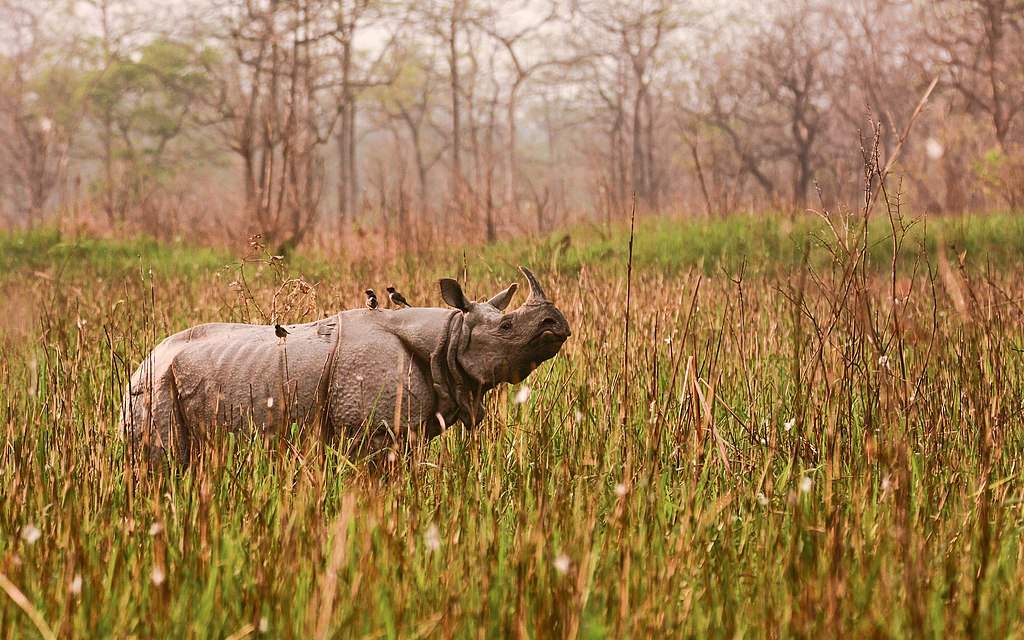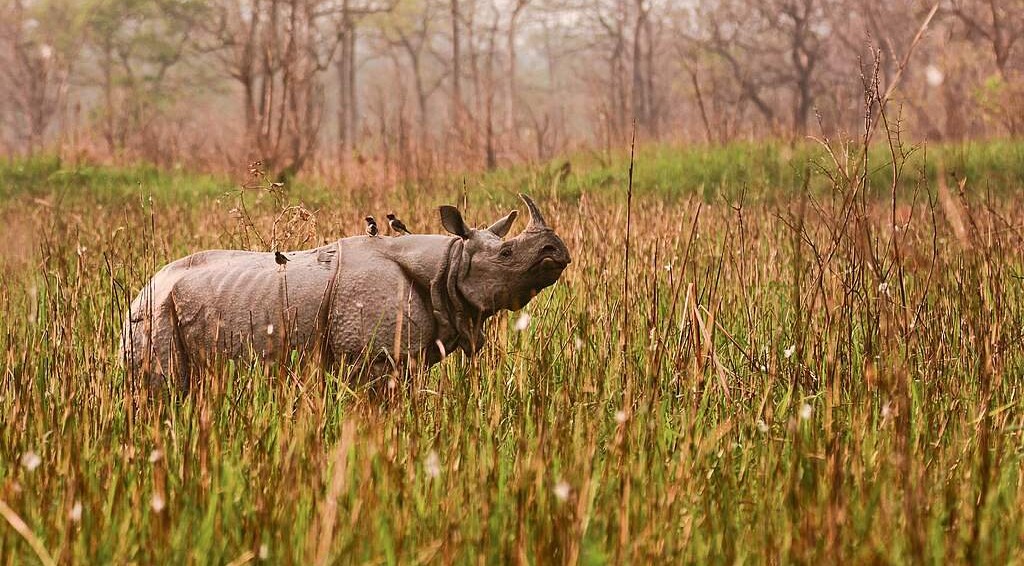
In May 2021, a new Chief Minister of the Indian state of Assam set out to thoroughly put an end to poaching in the state’s protected areas.
Now 20 months later, the forestry and police departments of the state have reported that 2022 saw no rhinos lost to poaching, the first time that’s happened since 1977.
Located on the borders of Tibetan China to the north and Myanmar to the east, Assam is one of the richest biodiversity zones in the world and contains Kaziranga, Manas, and Orang national parks as well as Pobitora Wildlife Sanctuary.
Together these four protected areas make up most of the one-horned rhinoceros’ range in the country, and of the 2,895 rhinos in the state, nearly all of that number can be found inside them.
Chief Minister Sarma put together a special anti-poaching task force led by Special Director General of Police G. P. Singh. The task force created a database of past incidents of rhino poaching with details of when, how, and where they took place. Convicted poachers had their phones monitored, and local fishermen and villagers were brought on as informants.
MORE FROM INDIA: Religious Practices Have Preserved 125,000 Sacred Groves in India, Growing a Conservation Success
When the work came to inside the park, the rhinos were treated like presidents. Sophisticated police commando teams patrolled the parks with night vision equipment and drones, and the number of teams increased on full moon nights.
When flooding in Kaziranga drove the rhinos to higher ground during the 2022 monsoon season, the teams stayed in the field 24-7 until the animals could disperse again after the waters receded.
“If we continue with this pressure, rhino poaching will stop completely,” Singh told the Hindustan Times. “For this, the cost to poachers has to be higher than the profit they earn.”
MORE ON POACHING: India Deploys Super-Sniffer Dogs to Protect Newly-Introduced Cheetahs from Poachers
A colleague notes that the coordination has become so thorought that poacher arrest rates are now being measured weekly, rather than monthly as before.
It’s this kind of devotion that has seen the numbers of one-horned rhinos climb from just around 100 individuals in 1910, to almost 3,000 today.
SHARE This Dedicated Police Work And The Success It Brought To Rhinos…




















